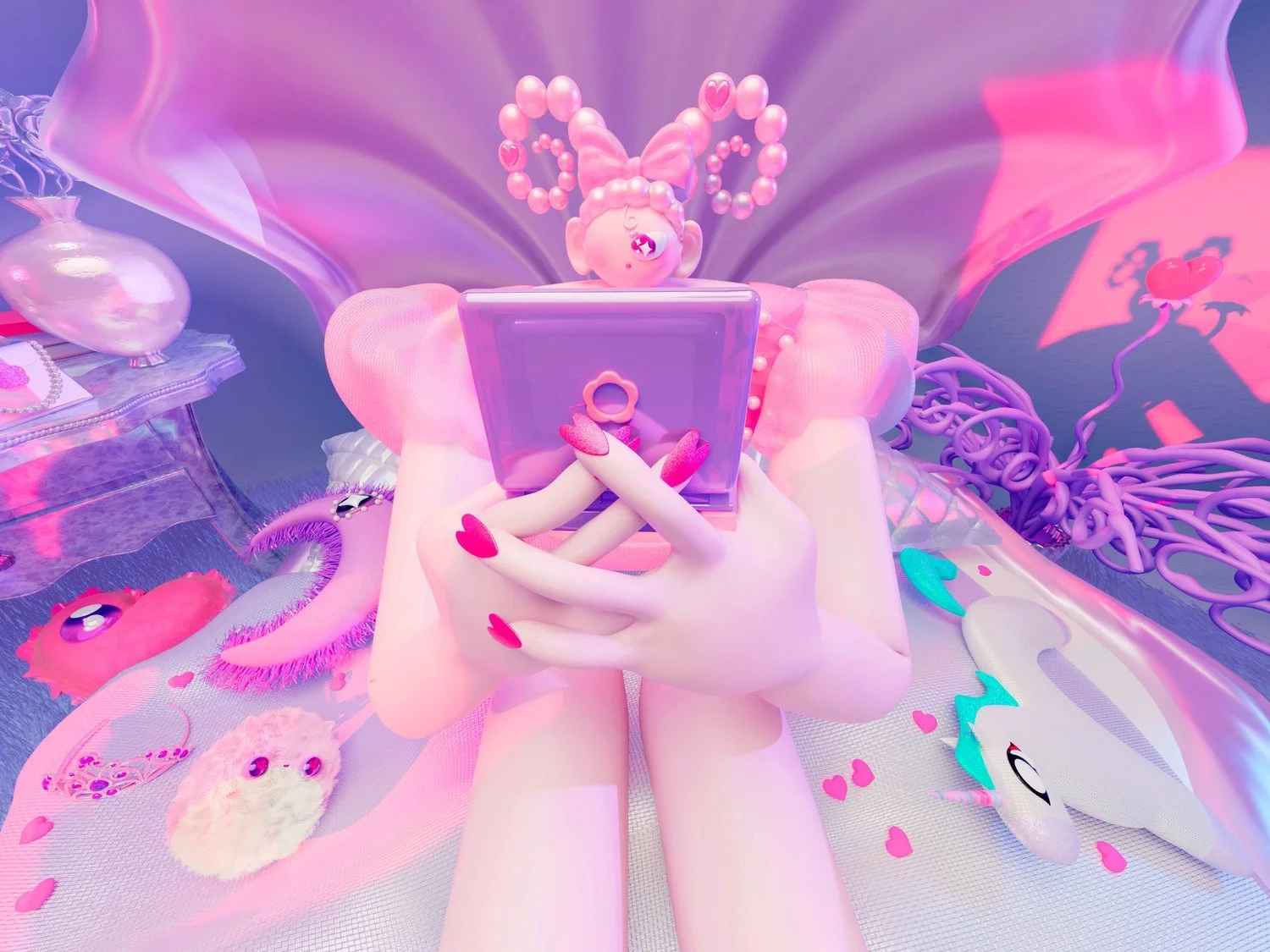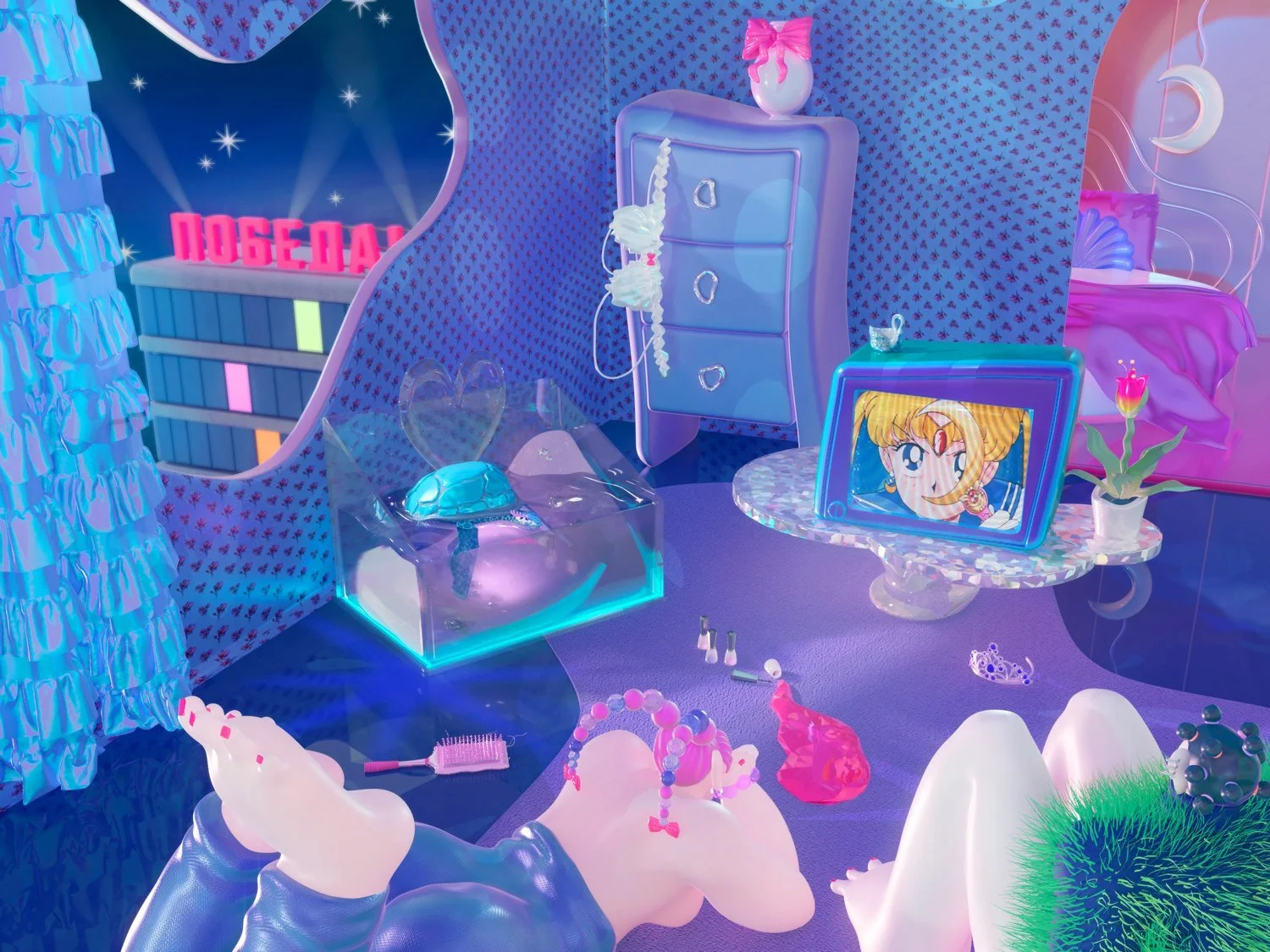Caterpillar Girls is the 3D Art Series Exposing Gender as a Social Construct
I didn't think much about my past until two years ago, when I started working with a psychologist and realized how important it was to revisit my childhood experiences. My parents used to tell me that the past should be left by the wayside, that everything unfortunate that happened in the past should be ignored, and that life should move on. They said that resentments will fade away as wounds heal on their own. Personally, I don’t believe that reflecting on the past implies becoming trapped in it or refusing to move forward. To my surprise, immersing myself in memories and taking a fresh look at them enabled me to define my artistic practice and visual style. Rather than running away from traumatic events, I transform them into new images by filtering them through the lenses of magic, nostalgia, and humor.
We had a class at school called "Labour Vospitanie" in which boys and girls were divided into two groups: one dealt with wood, metal, and mechanics, while the other dealt with cooking, embroidering, and sewing. This type of class, which is sometimes referred to as "Labor Education," is still taught in local schools. This summer, I became fascinated with the word "Vospitanie," which led to the creation of "The Caterpillar Girl," a short animated film that I completed for my graduation project in 2021. The word "Vospitanie" has no literal translation in English, but it can be used to describe "education and parenting" while imposing ideas about what is right and wrong in relation to traditional gender roles. Unfortunately, "Vospitanie" does not educate children about gender as a social construct, but rather forces it upon them as an unavoidable part of their biological sex.
When you grow up in a political environment characterized by stagnation and dictatorship, you lose sight of your future. For me and my friends, many goals that seemed relatively attainable to Westerners were nothing more than a fairy tale. It was as if we could only watch the western world's trends from behind the Iron Curtain and wish to one day be a part of something bigger, something more exciting. We daydreamed endlessly and hopelessly. We mentally disconnected from reality, where we were constantly condemned for our body, our character, our dreams, and our creativity. Under the constant pressure of societal vilification, where toxic norms were constantly imposed on us: dress like a girl, don't joke like a man, marry a rich and handsome guy, be gentle and kind, look like all other normal girls; none of us felt comfortable. To get away from the conservative preaching, we spent our days at the movies, watching the latest releases, or sleeping over at each other's apartments and watching TV shows, discussing celebrities, and fantasizing about discovering some amusing superpowers. It felt to me that our friendships created a very personal, cozy, and safe cocoon that sheltered us all and formed a tight bond between us.
“I create magical scenarios out of personal photos, memories, and articles, as a tribute to the magical escapism that sheltered us girls from oppression and organized the chaos around us into something creative and hopeful.”
After moving to the Netherlands six years ago at the age of nineteen, I realized I was in complete dissonance between my body and my mind, that I do not accept myself for who I am, and that I try to avoid themes that remind me of the past in any way possible. This had a significant impact on my creative development; it was difficult for me to work with personal experience, and I had a general lack of understanding of who I was, where I came from, and why I was here. But, over time, with the help of friends, psychology, breathing, and yoga, I began to discover the aspect of myself that had been hidden in the furthest corner of my consciousness for so long. I began to incorporate themes from my past into my illustrations. I create magical scenarios out of personal photos, memories, and articles, as a tribute to the magical escapism that sheltered us girls from oppression and organized the chaos around us into something creative and hopeful. My female characters' funniness, freedom, and wildness represent the emotions and desires that were so vehemently suppressed by the society I grew up in.
Words & Art: Aleksandra Bokova
Aleksandra Bokova is a 3D artist with a primary focus on illustration and animation. She graduated from the Willem de Kooning Academie in 2021 and is currently based in Rotterdam, the Netherlands. Aleksandra was born and raised in Minsk, Belarus, and moved to The Netherlands when she was nineteen years old to pursue a degree in arts. In her works, she invents whimsical and weird characters and environments, inspired by her Post-Soviet upbringing.











